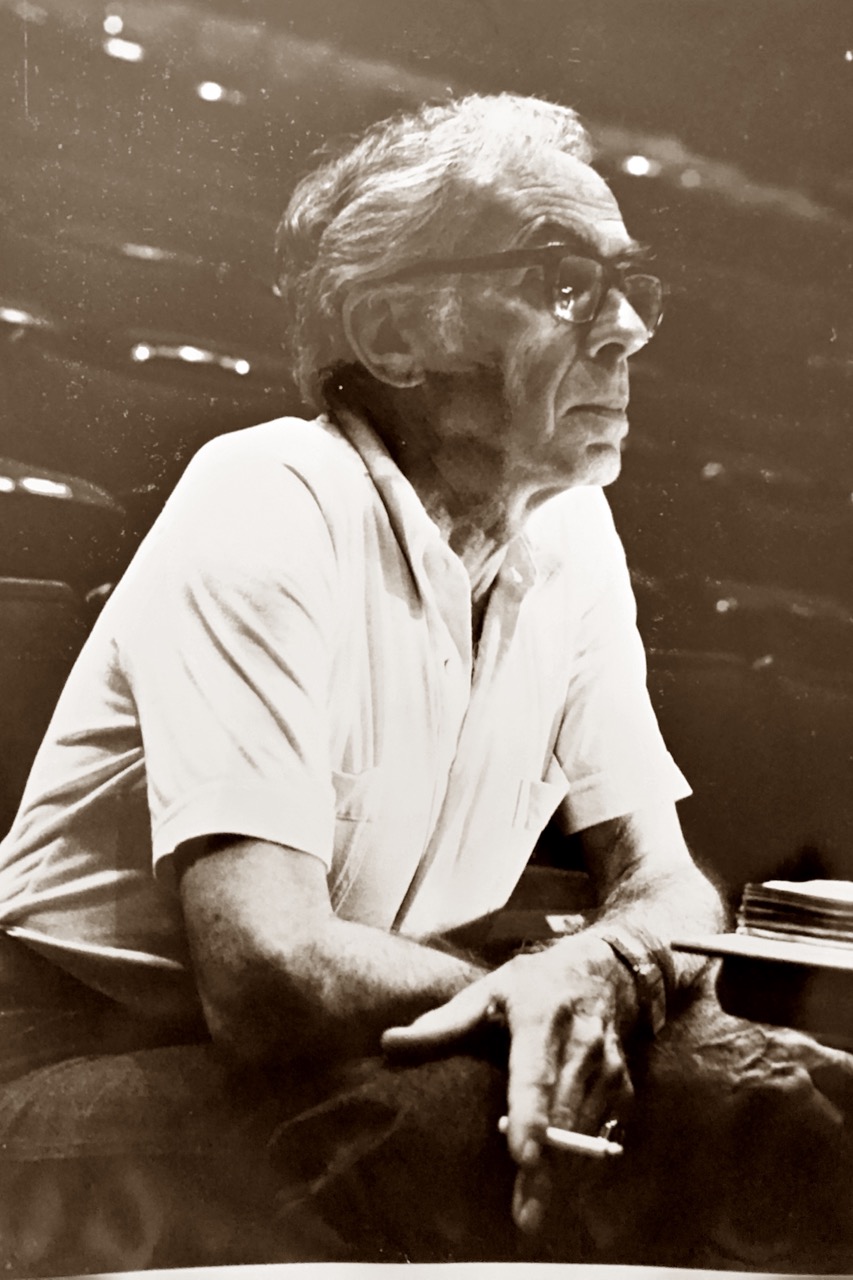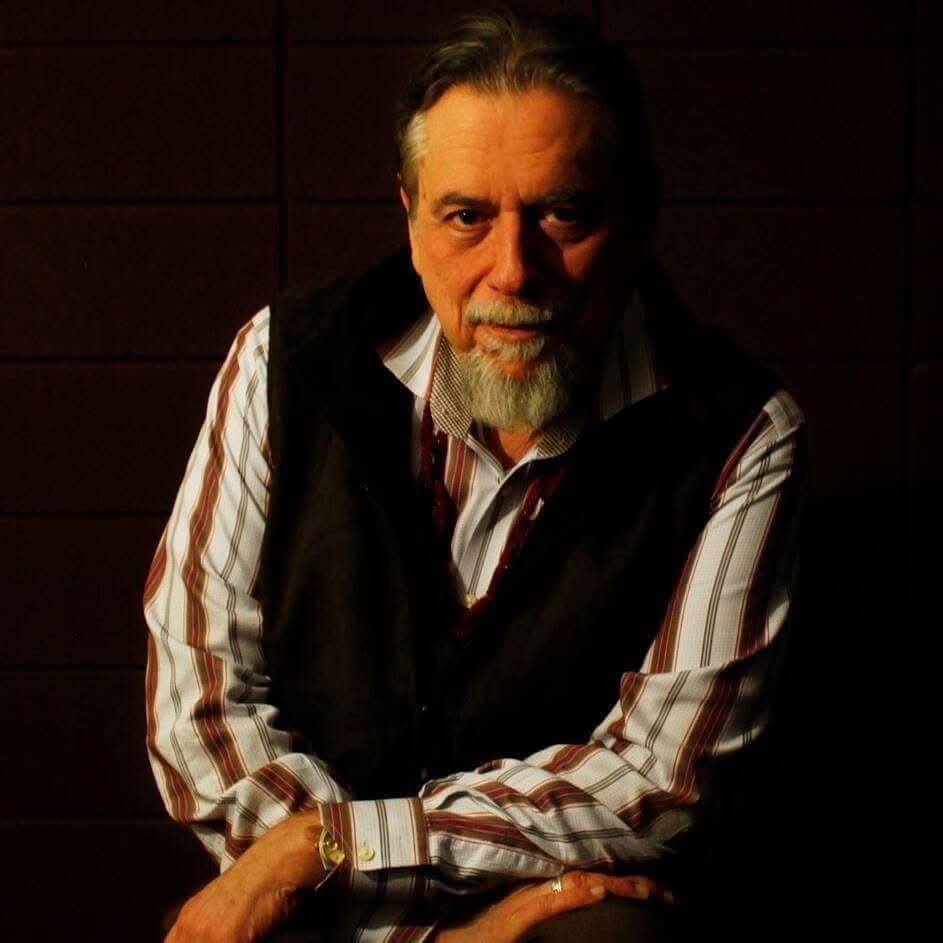
Spring 2025 seems an appropriate time to discuss the meaning of legacy in our School of Theatre & Dance, especially because we end the semester celebrating Ron Schulz, a beloved professor (1952-1982) who chaired the department, while directing dozens of plays at Texas Tech and in the community. And, sadly, we just lost a much more recent member of our School, Dr. Jonathan Marks, a Yale graduate who was not only our Head of Acting/Directing and Director of Graduate Studies, but also Interim Dean for a few years while directing several productions for us during his years at Texas Tech (1995-2018). So, the concept of legacy is much on our minds.
First, a bit of background:
 Although Mr. Schulz was hired to chair our then-department of theatre, he directed
three plays his first year for us--A Comedy of Errors, Cradle Song, and Light Up the Sky—as well as Hedda Gabler for the community, while working on his dissertation at Northwestern University:
“The Reaction Against Realism in American Drama and Dramatic Theory from 1920-1950.”
He had served as Supervisor of the Workshop Theatre at Northwestern, their most experimental
program, and supervised over 80 productions during his time there while teaching drama
and directing full-length plays for the university, so he came with plenty of experience
and an incredible work ethic, based, I hear, on his unparalleled affection for the
art of performance.
Although Mr. Schulz was hired to chair our then-department of theatre, he directed
three plays his first year for us--A Comedy of Errors, Cradle Song, and Light Up the Sky—as well as Hedda Gabler for the community, while working on his dissertation at Northwestern University:
“The Reaction Against Realism in American Drama and Dramatic Theory from 1920-1950.”
He had served as Supervisor of the Workshop Theatre at Northwestern, their most experimental
program, and supervised over 80 productions during his time there while teaching drama
and directing full-length plays for the university, so he came with plenty of experience
and an incredible work ethic, based, I hear, on his unparalleled affection for the
art of performance.
 Dr. Marks had the honor of participating in the founding of the College of Visual
& Performing Arts, serving as the second dean on an interim basis, and for the better
part of two years held three offices: in the Theatre & Dance building, in the Provost’s
Office, and in the old Dean’s office. He was hired to be Head of Directing but taught
everything from theatre history to our very first dramaturgy courses. He often claimed
that his favorite productions were always his most recent, and he was honored to open
the new T&D complex with his devised production of Moliere’s Doctor Love, replete with original music and choreography. And he proudly headed the university’s
first Quality Enhancement Plan, the Ethics Initiative that still guides the university’s
principles that define how we do the right thing.
Dr. Marks had the honor of participating in the founding of the College of Visual
& Performing Arts, serving as the second dean on an interim basis, and for the better
part of two years held three offices: in the Theatre & Dance building, in the Provost’s
Office, and in the old Dean’s office. He was hired to be Head of Directing but taught
everything from theatre history to our very first dramaturgy courses. He often claimed
that his favorite productions were always his most recent, and he was honored to open
the new T&D complex with his devised production of Moliere’s Doctor Love, replete with original music and choreography. And he proudly headed the university’s
first Quality Enhancement Plan, the Ethics Initiative that still guides the university’s
principles that define how we do the right thing.
While both professors attended two of the best universities in the nation, that’s not necessarily the criteria that ensures a legacy, because let’s be honest—the philosophy behind the concept of legacy is not just an impressive resume or even a list of accomplishments. I wasn’t fortunate enough to know Mr. Schulz, but from what I hear, he was much beloved and respected because of his keen insight into directing, his uncanny ability to create ensemble and his sheer affection for the students he took under his wing. Dr. Marks had a similar mission—he loved his students, fought for them, believed in them, and constantly encouraged their success by casting them in performances that challenged them.
One quality I know both men shared was to embrace risk. It’s one thing to claim we encourage students to take risks even if they fail, but it’s another entirely to put them in positions where failure is, indeed, a viable option. Both chose plays to best educate their students, believing wholeheartedly that they had the capacity to “rise to the occasion,” to discover talents even they didn’t know they had. So, I suppose another quality that helps both professors reach legacy status is the implicit respect such a choice reflects about the manner with which they challenged their students.
A third quality, one that’s a bit harder to define, rests in the impact both men had on our School. Mr. Schulz is still seen as one of the best directors to ever grace our stage, and students were so enamored with his talents that they almost rebelled when our theatre building was not named after him. From what I hear, he was tough, sure, but the students who worked for him knew that if they gave their time, they’d be proud of their work.
From what I’ve heard from alums who studied under Mr. Schulz, he expected the world from them, but he also gave them 100%, no matter what other obligations he held. And I know the same is true of Dr. Marks, who was a great mentor to me in my early years here, and who always took on any challenge the School threw his way. He treated his students like family, giving them the benefit of the doubt, taking a firm stance when it was necessary without letting students too easily “off the hook.” Dr. Marks wanted the best for everyone with whom he came into contact and would work diligently to assure their success.
Neither was seen as a pushover, but both earned respect and affection by never shying away from doing the work it took to convey their inherent belief in the students studying under them. And both greatly impacted where our School is right now.
Ron Schulz retired in 1982, and yet, he was the first name I heard from alums when I arrived to chair the department in 2012. We just lost Dr. Marks, but I’m confident based on the chorus of voices praising him over social media that he will, too, leave a legacy here at Texas Tech. Maybe it’s because students don’t really honor either professor for the shows they directed or the classes they taught; instead, they praise them for pushing them to do their best, for trusting them, and for helping to transform them into the artists they later became. But more than that, students thank them for helping them understand their potential to use art to make a difference in the world—a combination of empathy, strength, vision, community outreach, and respect.
Those who leave a legacy will be remembered and appreciated long after their retirement, and, indeed, long after those who have taken the time to read this column will be around, and there’s great comfort in that.
As we mourn the passing of Dr. Marks and celebrate the achievements of Mr. Schulz, it’s truly the students themselves who determine the extent of their importance--for only they carry in their hearts the impact such giants have upon their lives. We witnessed this love in Dr. Marks’ retirement ceremony a few years back, and we saw it again this past April when alumni gathered to honor Mr. Schulz. Both men helped to build this School of Theatre & Dance that we all love, and we are, and will always be, grateful.
